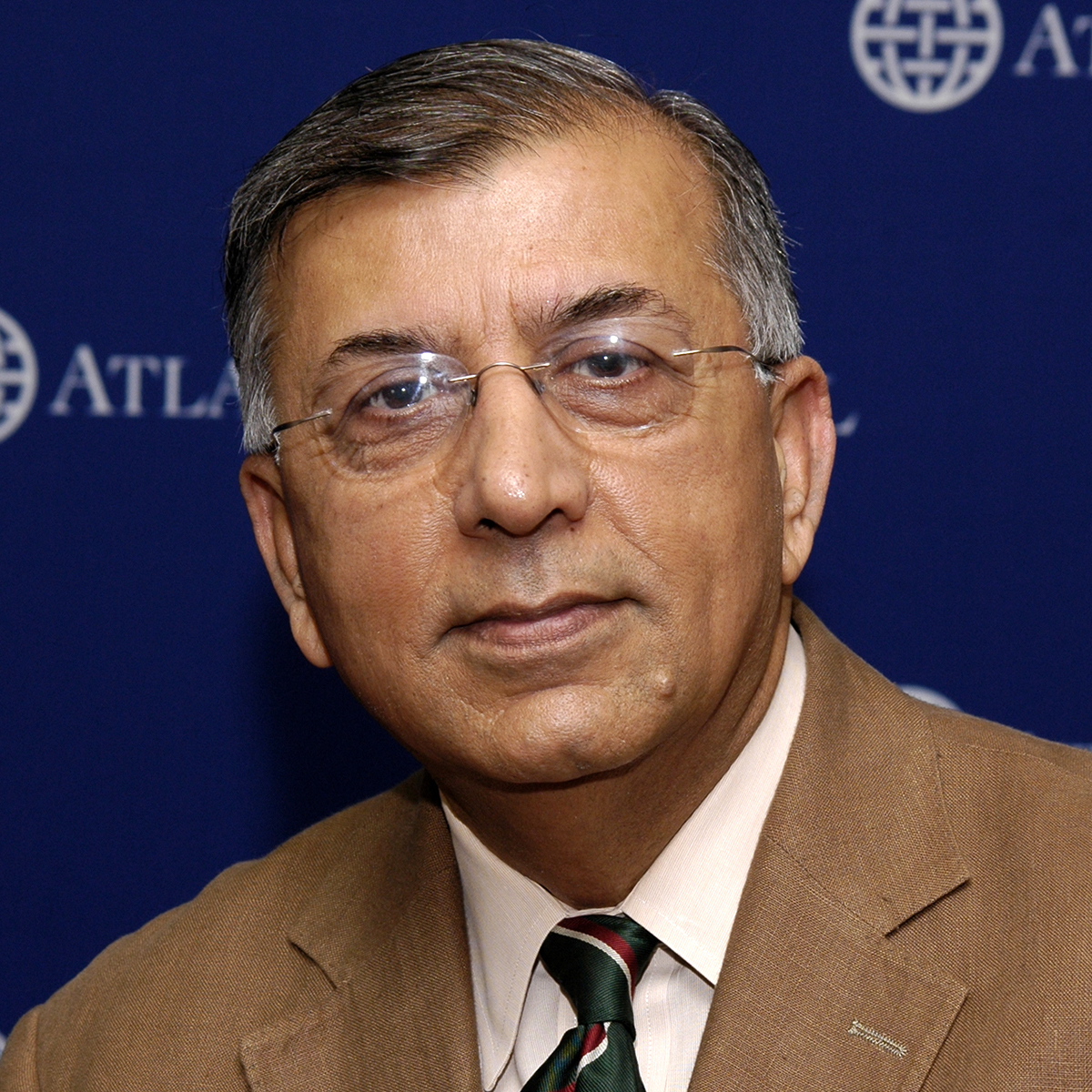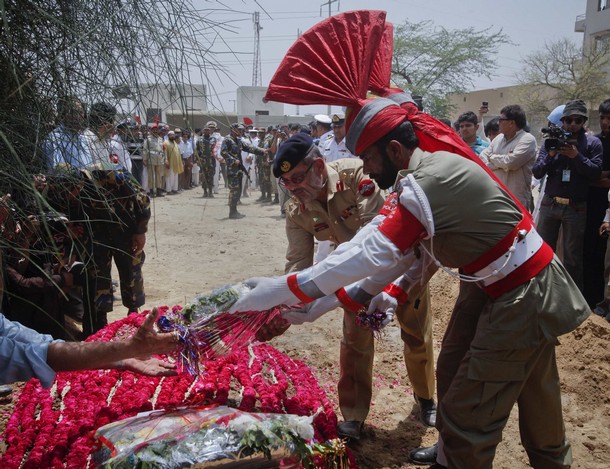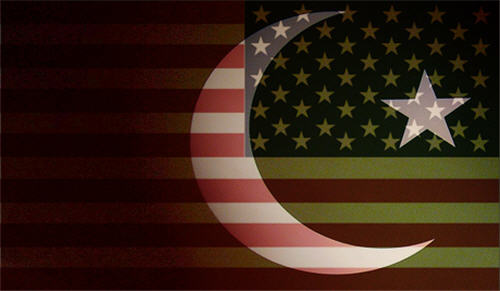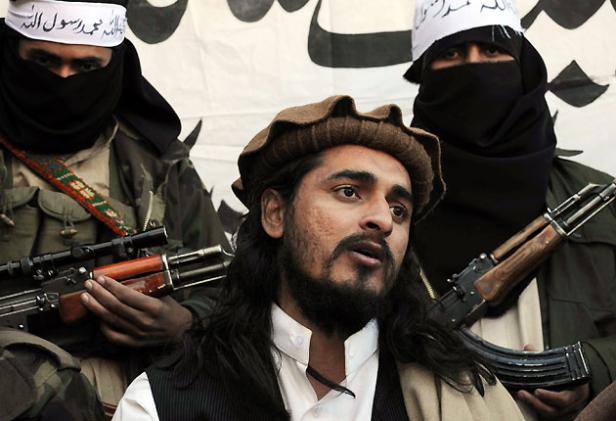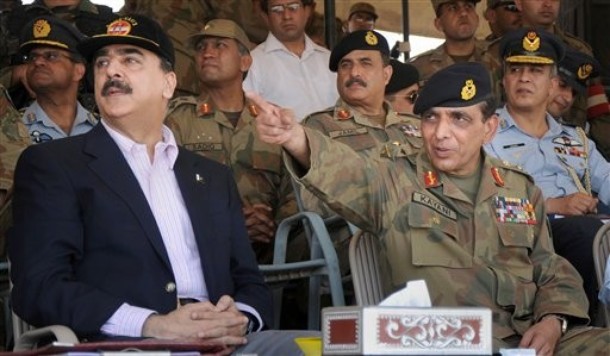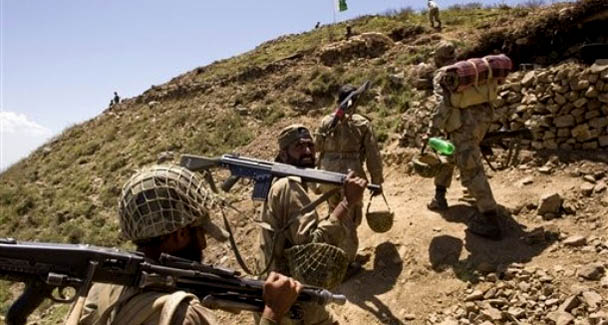
The United States has long complained that Pakistan’s military and intelligence services are playing a double game when it comes to terrorism and extremism: publicly promising cooperation-and indeed delivering some-while privately supporting America’s enemies. They point to Pakistan’s apparent reluctance to take on groups like the Haqqaani network, a Taliban affiliate that launches attacks on American soldiers in Afghanistan, and the Quetta Shura, Taliban leaders based in Baluchistan. In the eyes of the United States, the Pakistan army has not been the most dependable international ally, a sentiment that is reciprocated by the Pakistanis. And now, many American officials are hoping that the raid that killed Osama bin Laden will give them the leverage to force the Pakistani security establishment to choose sides once and for all.
If only it were that simple.
Killing bin Laden has indeed succeeded at putting pressure on the Pakistani army, but not to the effect that Washington may have wished. The truth is that Pakistanis are angrier about the United States’ ability to launch a special-operations raid right under their noses than they are that bin Laden was found on their soil-and the military is bearing the brunt of the criticism inside Pakistan. Text-message jokes about the army are making the rounds, parliament is angrily voicing embarrassing questions about the military’s lack of preparedness, and the chattering classes are tossing ceaseless insults. But it’s the United States that now has the most to lose. The Pakistani military is destined to remain an important institution in Pakistan’s otherwise dysfunctional polity, and Washington has more to gain by reforming it cooperatively than by casting it aside.
Pakistan’s history and geography has always dictated the need for a large military. It is surrounded by multiple major powers and conflict zones: Afghanistan to the west, rising India to the east, and China to the north, making Pakistan a key locus of super power interests and rivalries. It is necessarily wary about its own security. And the army has always seen itself as the national institution par excellence, an organization explicitly of the people and for the people. Indeed, recruitment patterns show that the army is increasingly representative of the country as a whole: in an otherwise fractured country, that is reason enough to justify its outsized presence on the national stage.
For the most part, the Pakistani military has earned its reputation as an effective military force. But it also overreached in trying to take over civil administration under general-cum-president Pervez Musharraf. And it has been poor at political engineering. The army under Musharraf had penetrated the ranks of the civilian bureaucracy, taking over education and training institutions and essentially running certain ministries. After assuming command as army chief, Kayani ordered all army officers serving in government to either resign from the military or to return to it full time.
At the time of the May 1 raid, the Pakistani military had just recently restored its pride of place as the most respected institution in the country. It had slipped in public confidence after it allowed the Pakistani Taliban to take over parts of Malakand and Swat in 2006, but in the past four years, the army, under its new chief, Gen. Ashfaq Parvez Kayani, has focused on burnishing its credentials and improving the institution’s professionalism and capacity to fight. Both had been compromised under Musharraf’s autocratic rule.
In the face of a rising tide of homegrown terrorism and insurgency, the army also shifted gears and its training from being India-centric to being more agile and prepared for low-intensity conflict, using some of the counterinsurgency (COIN) principles that the United States army learned in Iraq and Afghanistan. Within the past two years, it revamped the training at its military academy, infantry school, staff, college, and the national defense university to focus on how to fight asymmetric war against its own people. And it has moved some 150,000 troops to fight terror groups on its western border, incurring the wrath of a domestic insurgent group, the Tehrik-e-Taliban Pakistan (TTP). This was a major shift in thinking for a force that had in earlier years used its top spy agency, the Inter-Services Intelligence directorate, to foment insurgency in neighboring countries and support militancy against Afghanistan and India. It was a shift that was in tune with Washington’s priorities in the region.
That’s not to say that the military has been unimpeachable. It is still too involved in the country’s economy, with major holdings in banking, real estate, and transportation. Especially as the national economy has deteriorated, the military has had incentives to involve itself in civilian decision-making. Further, Pakistan continues to countenance the use of its territory by Afghan Taliban groups that fight the U.S.-led coalition inside Afghanistan. Its inability or unwillingness to take on these Afghan groups in their Pakistani sanctuaries is a constant irritant in its relationship with the United States.
But the Pakistani military apparently recognizes the value of its ties with the U.S. military — and not just the $16 billion it has received in security-related aid and reimbursements since 2001. A measure of the importance attached to American military training by the Pakistani military is the fact that a number of officers sent to the United States have been promoted before their return to Pakistan, if not immediately afterwards. Clearly, a lot of thought is going into the selection of the individuals being sent to the United States for specialized training. Some 100 of them will be in the United States this year alone.
Washington would be wise to use that cultural affinity — as well as the fact that the Pakistani army depends on the United States to maintain its weapons systems and supply spare parts — as leverage to change the shape of their long-term collaboration. Both sides need to explicitly agree on the nature of their relationship and identify and determine the reasons for their disagreements so there are no residual suspicions. A written agreement would provide maximum certainty. But the trust that is needed to sustain this relationship has to be earned by both sides. That will take time.
Determining the role of the Pakistani intelligence should, no doubt, also be on the American agenda. The ISI is an integral part of the Pakistan military, and the current head, Lt. Gen. Ahmad Shuja Pasha, is a close confidant of Kayani. It would be a mistake to assume that Pasha is working at cross purposes with the military.
But Washington can do plenty to immediately prove its good faith to Pakistan’s most important public institution. It should share any links it can substantiate between the army and al Qaeda in general, and bin Laden in particular. It could emphasize that the United States is prepared to work together with Pakistan to find other al Qaeda leaders in other towns in the vicinity of Abbottabad, where they are likely to be located (given the reliance on courier communications of al Qaeda central). It could work to strengthen the capacity of Pakistan’s civilian police institutions, which are closer to the ground and could play a key role in fighting militancy.
Of course, the United States is within its rights to lay out the options clearly and the implications of non-cooperation. Americans are angry at what they see as Pakistan’s duplicity in the face of terror. But punishment is not a policy. No matter what the United States does, Pakistan’s military will maintain its outsized role in the country’s public life, and any agreement has to be in its interests for it to stick. Fortunately, there is much overlap between Washington’s and Islamabad’s interests in the region, from a stable Afghanistan and Pakistan to normalization of Pakistan’s relations with India.
Before anything else, however, the Pakistani army should be given time to resolve its internal debates, tempting though it may be to ratchet up criticism and pressure after its public humiliation on May 1. If not, then a break with Pakistan may be unavoidable. And if that happens, it’s likely the United States that will find itself friendless at a time when it needs allies more that ever.
Shuja Nawaz is director of the South Asia Center at the Atlantic Council. This essay originally appeared in Foreign Policy.
